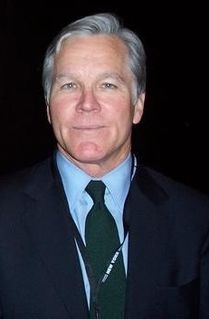A Quote by Lord Acton
Every error pronounces judgment on itself when it attempts to apply its rules to the standard of truth.
Related Quotes
Error is a supposition that pleasure and pain, that intelligence, substance, life, are existent in matter. Error is neither Mind nor one of Mind's faculties. Error is the contradiction of Truth. Error is a belief without understanding. Error is unreal because untrue. It is that which stemma to be and is not. If error were true, its truth would be error, and we should have a self-evident absurdity -namely, erroneous truth. Thus we should continue to lose the standard of Truth.
The judgment that every voter is making of every one of us [running for presidency] who has the experience, who has the vision, who has the judgment to be commander in chief. That is the most important decision for the voters to make. That's a standard I'm held to. And it's a standard everyone else is held to.
The error in positivism is that it takes as its standard of truth the contingently given division of labor, that between the science and social praxis as well as that within science itself, and allows no theory that could reveal the division of labor to be itself derivative and mediated and thus strip it of its false authority.
Now, I stand alone on this rock, fighting the errors of this world, and establish the science of life by my works. What is my mode of warfare? With the axe of truth I strike at the root of every tree of error and hew it down, so that there shall not be one error in man showing itself in the form of disease.
The world always makes the assumption that the exposure of an error is identical with the discovery of truth - that error and truth are simply opposite. They are nothing of the sort. What the world turns to, when it has been cured of one error, is usually simply another error, and maybe one worse than the first one.
It is too often believed that a person in his progress towards perfection passes from error to truth; that when he passes on from one thought to another, he must necessarily reject the first. But no error can lead to truth. The soul passing through its different stages goes from truth to truth, and each stage is true; it goes from lower truth to higher truth.
As soon as error is corrected, it is important that the error be forgotten and only the successful attempts be remembered. Errors, mistakes, and humiliations are all necessary steps in the learning process. Once they have served their purpose, they should be forgotten. If we constantly dwell upon the errors, then the error or failure becomes the goal.
Pedantry and mastery are opposite attitudes toward rules. To apply a rule to the letter, rigidly, unquestioningly, in cases where it fits and in cases where it does not fit, is pedantry. [...] To apply a rule with natural ease, with judgment, noticing the cases where it fits, and without ever letting the words of the rule obscure the purpose of the action or the opportunities of the situation, is mastery.
































